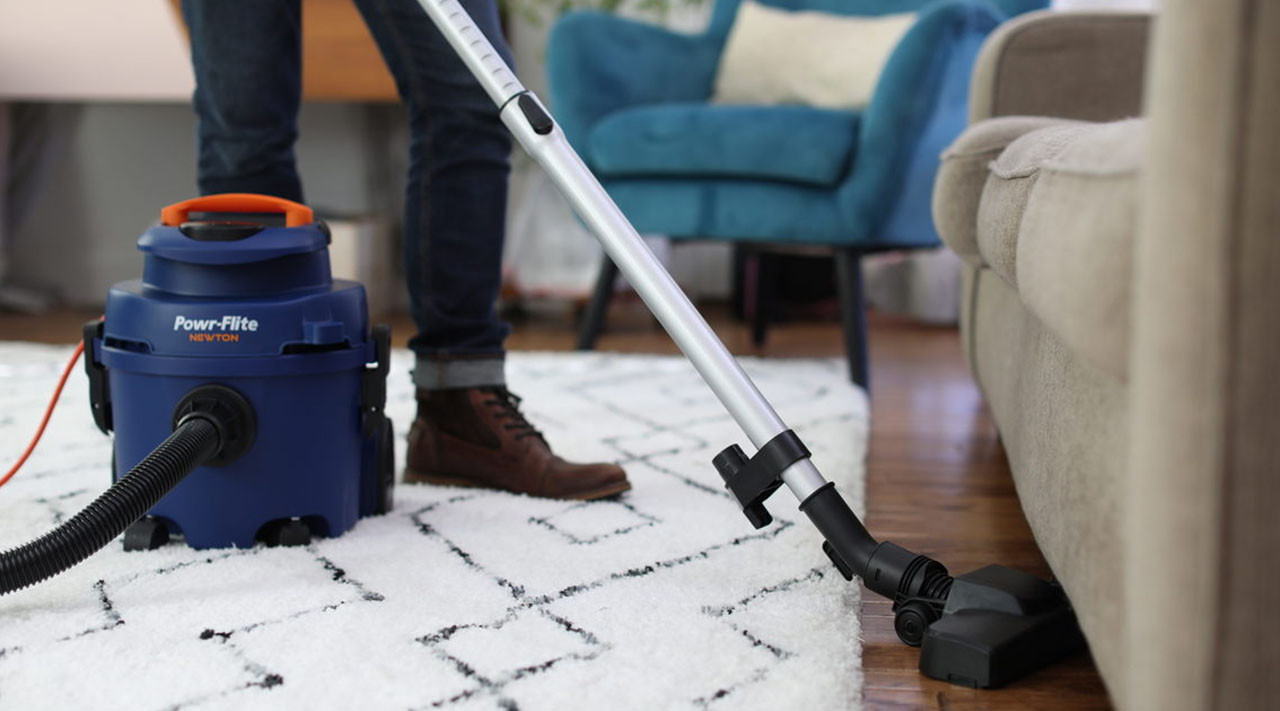Best Commercial Vacuum Cleaner Guide: 4 Top Picks for 2026
Choosing the right commercial vacuum cleaner in facility maintenance can make all the difference. Whether you're managing a bustling hotel lobby, a hospital hallway, or an expansive office, the right vacuum ensures cleanliness, reduces maintenance costs and improves indoor air quality.
With the commercial vacuum cleaner market projected to reach $930 million by 2030, it's clear that businesses recognize the importance of investing in reliable cleaning equipment.
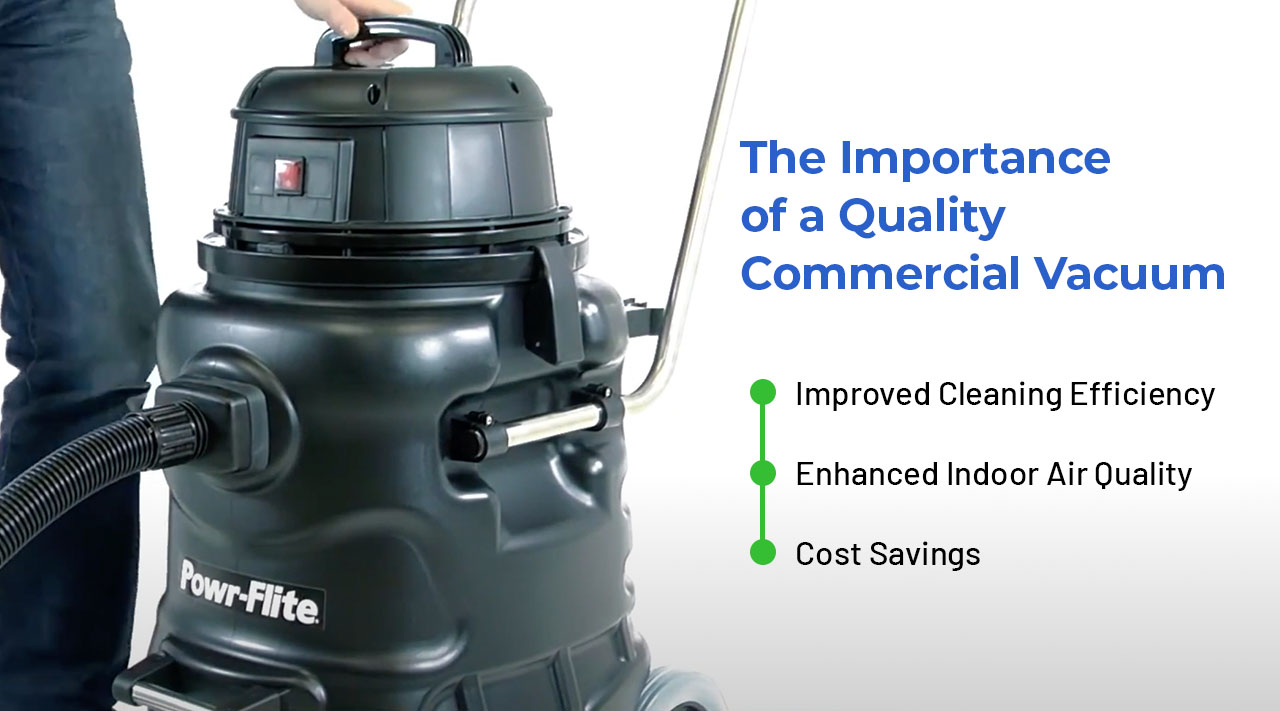
The Importance of a Quality Commercial Vacuum
A good commercial vacuum goes beyond basic cleaning—it helps maintain a polished appearance for your facility, improves safety, and boosts employee efficiency. The best professional vacuum cleaner is built to withstand frequent, heavy-duty use and tackle a variety of surfaces with ease.
Unlike residential models, the best commercial vacuum cleaner delivers powerful performance and durability, making it essential for businesses that prioritize cleanliness and productivity.
Commercial Vacuum Cleaner Key Benefits:
• Improved Cleaning Efficiency: The right vacuum reduces cleaning times by up to 30%.
• Enhanced Indoor Air Quality: HEPA filtration systems capture allergens and fine dust, creating healthier environments.
• Cost Savings: Durable commercial vacuums last longer, reducing replacement costs and downtime.
Factors to Consider When Choosing a Commercial Vacuum
1. Understand Your Cleaning Needs
Assess your facility's specific requirements:
• Floor Types: Are you dealing with carpets, hardwood, or tile? For versatility, opt for vacuums with adjustable height settings.
• Space Size: Large areas may require wide-path vacuums or ride-on models for efficiency.
• Debris Type: Prioritize suction power and specialized filters for fine dust or industrial debris.
2. Noise Levels
Low-noise vacuums (under 70 decibels) ensure a quieter environment for facilities like hospitals, libraries, or offices.
3. Filtration Systems
HEPA filters are essential in healthcare and hospitality spaces to capture 99.97% of particles, including allergens and bacteria. Advanced filtration ensures cleaner air and complies with strict industry standards.
4. Durability and Build
Invest in vacuums with:
• Metal components for heavy-use areas.
• Impact-resistant casing for added durability.
• Long-lasting motors designed for extended run times.
5. Ergonomics
Lightweight, easy-to-maneuver designs reduce worker fatigue. Look for models with:
• Adjustable handles.
• Convenient cord management.
• User-friendly controls.
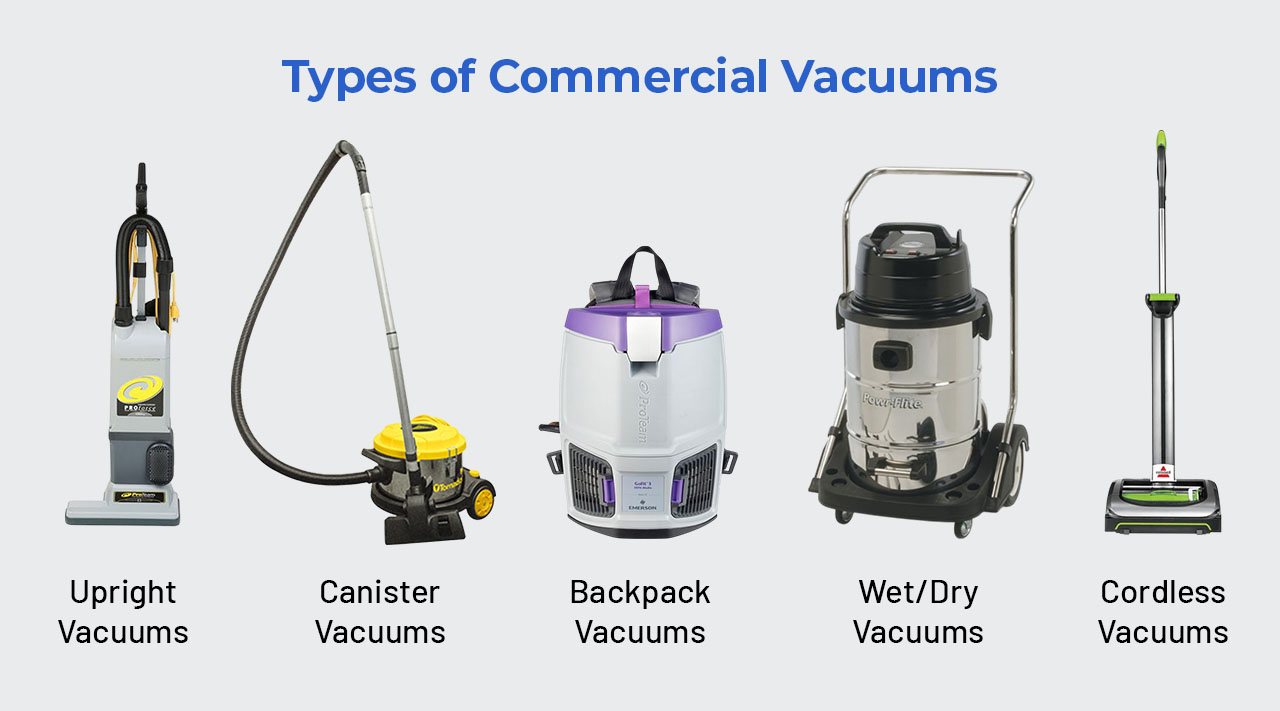
3 Top Picks for Commercial Vacuums
1. Best Overall: Upright HEPA Vacuum Cleaner
• Features: Strong suction, built-in HEPA filtration, and on-board tools for deep cleaning.
• Ideal For: Hotels, offices, and schools.
2. Best for Large Areas: Turbo Sweeper
• Features: Wide cleaning path, ergonomic design, and durable build.
• Ideal For: For a variety of surfaces and large cleaning areas.
3. Best for Versatility: Wet/Dry Vacuum
• Features: High-capacity tank, durable construction, and multi-surface capability.
• Ideal For: Industrial facilities and workshops.
Types of Commercial Vacuums
Understanding the types of commercial vacuum cleaners available will help you make the right choice for your facility:
1. Upright Vacuums
Ideal for large carpeted areas like hotel rooms or offices, these vacuums are efficient and user-friendly. Many feature adjustable height settings and onboard tools for versatility.
2. Canister Vacuums
Canister vacuums excel in versatility, handling various surfaces and tight spaces with ease. They’re perfect for detailed cleaning in hotels, restaurants, and healthcare facilities.
3. Backpack Vacuums
Designed for mobility and speed, backpack vacuums boost productivity by 230% compared to upright models. They’re great for cleaning stairwells, auditoriums, and areas with furniture.
4. Wet/Dry Vacuums
Wet/dry vacuums handle liquid spills and heavy-duty debris, making them essential for industrial facilities, workshops, and construction sites.
5. Cordless Vacuums
Cordless models are perfect for facilities with limited power outlets or high-traffic areas, offering flexibility and convenience.
Want to understand the key differences before making a purchase? Check out our guide on Commercial Vacuum vs Residential Vacuum: Which One Is Right for You? to learn more.
Top Features to Look for in Professional Cleaning Equipment
1. Power and Suction
Match suction power to your cleaning needs. Industrial vacuums often require 1500-2000 watts for optimal performance.
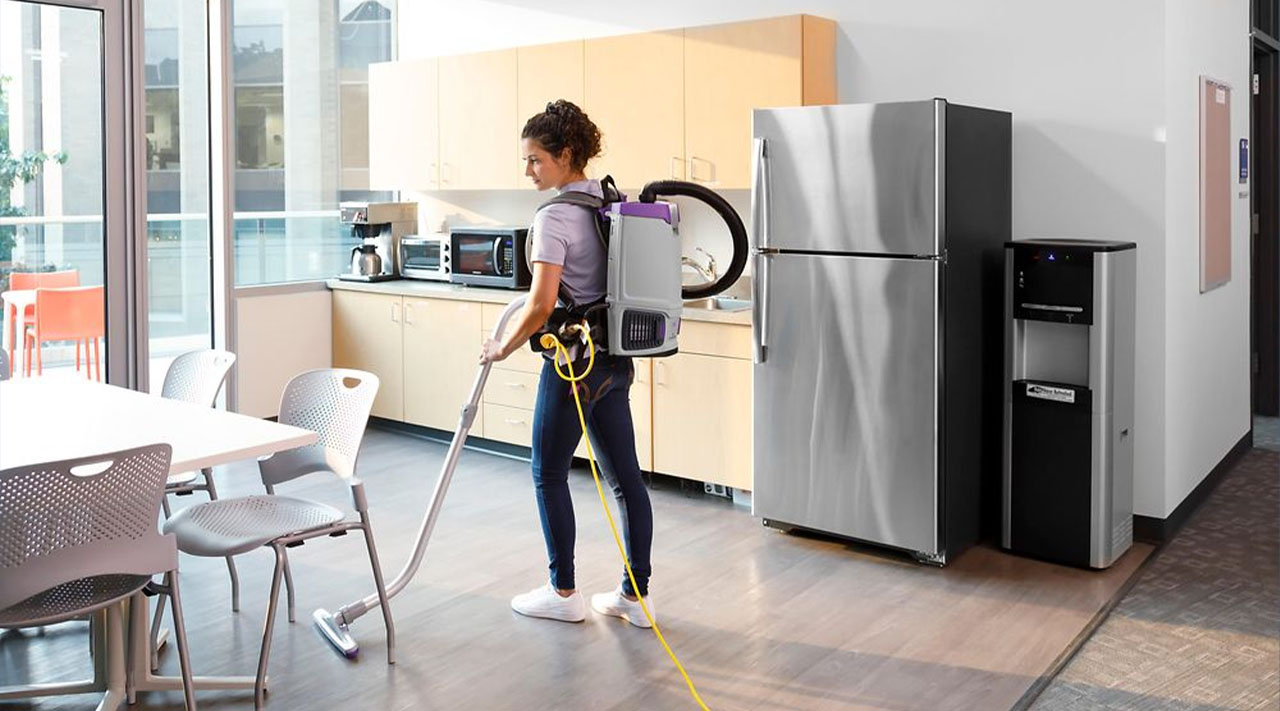
2. Bagged vs. Bagless
• Bagged Vacuums: Offer superior filtration and hygienic disposal.
• Bagless Vacuums: Save on replacement bags and allow quick debris disposal.
3. Smart Features
Modern vacuums come equipped with features like:
• Automatic height adjustment.
• Full-bag indicators.
• Quiet mode for noise-sensitive environments.
4. Attachments
The right tools can enhance cleaning efficiency. Look for:
• Crevice tools for tight spaces.
• Upholstery brushes for furniture.
• High-reach wands for ceiling vents.
Maintenance Tips for Longevity
To ensure your commercial vacuum performs well over time, follow these maintenance practices:
• Daily: Empty dust bags, check cords for damage, and clean filters.
• Monthly: Inspect belts and hoses, and deep-clean filters.
• Quarterly: Schedule professional servicing to keep the motor in top condition.
Proper maintenance not only extends the vacuum’s lifespan but also ensures consistent performance.
Conclusion: What is The Best Commercial Vacuum?
For facilities requiring mobility and superior air filtration, the Zogics HEPA Backpack Vacuum stands out. This model features true HEPA filtration, capturing 99.97% of particles down to 0.3 microns, which is crucial for maintaining high indoor air quality in environments like hospitals, schools, and offices.
Alternatively, for large carpeted areas, an upright vacuum with adjustable height settings and onboard tools may be more suitable. Canister vacuums offer versatility for various surfaces and tight spaces, while backpack vacuums enhance mobility and productivity, especially in areas with obstacles or stairs.
Ultimately, the best commercial vacuum cleaner is one that aligns with your facility’s specific cleaning requirements, ensuring efficiency, durability, and a healthier environment.
FAQs
1. Can I Use a Commercial Vacuum at Home?
While commercial vacuums can be used at home, their size and power might be excessive for residential cleaning needs.
2. How Often Should a Commercial Vacuum Be Serviced?
Regular maintenance is key:
• Daily: Empty bags and clean filters.
• Monthly: Inspect belts and hoses.
• Quarterly: Schedule professional servicing.
3. What’s the Best Vacuum for Allergens?
Choose a vacuum with a certified HEPA filtration system to capture allergens effectively.
4. What is the best vacuum for commercial use?
The best vacuum for commercial use depends on the specific needs of the environment, but some key features to look for include durability, strong suction power, and efficiency. Popular choices include:
• Canister vacuums: Great for large spaces and hard-to-reach areas.
• Upright vacuums: Commonly used for carpeted areas in offices, hotels, and gyms due to their convenience and cleaning efficiency.
• Backpack vacuums: Ideal for large or congested areas as they allow for better mobility.
• Industrial vacuums: Suitable for heavy-duty cleaning tasks in factories, warehouses, and larger commercial spaces.
5. How do HEPA vacuums improve air quality?
HEPA (High-Efficiency Particulate Air) vacuums improve air quality by trapping small particles, including dust, allergens, and other pollutants, that would otherwise be released back into the air during cleaning. The HEPA filters can trap particles as small as 0.3 microns, significantly reducing airborne contaminants. This makes HEPA vacuums an excellent choice for environments where air quality is important, such as hospitals, hotels, and offices with individuals who have allergies or asthma.
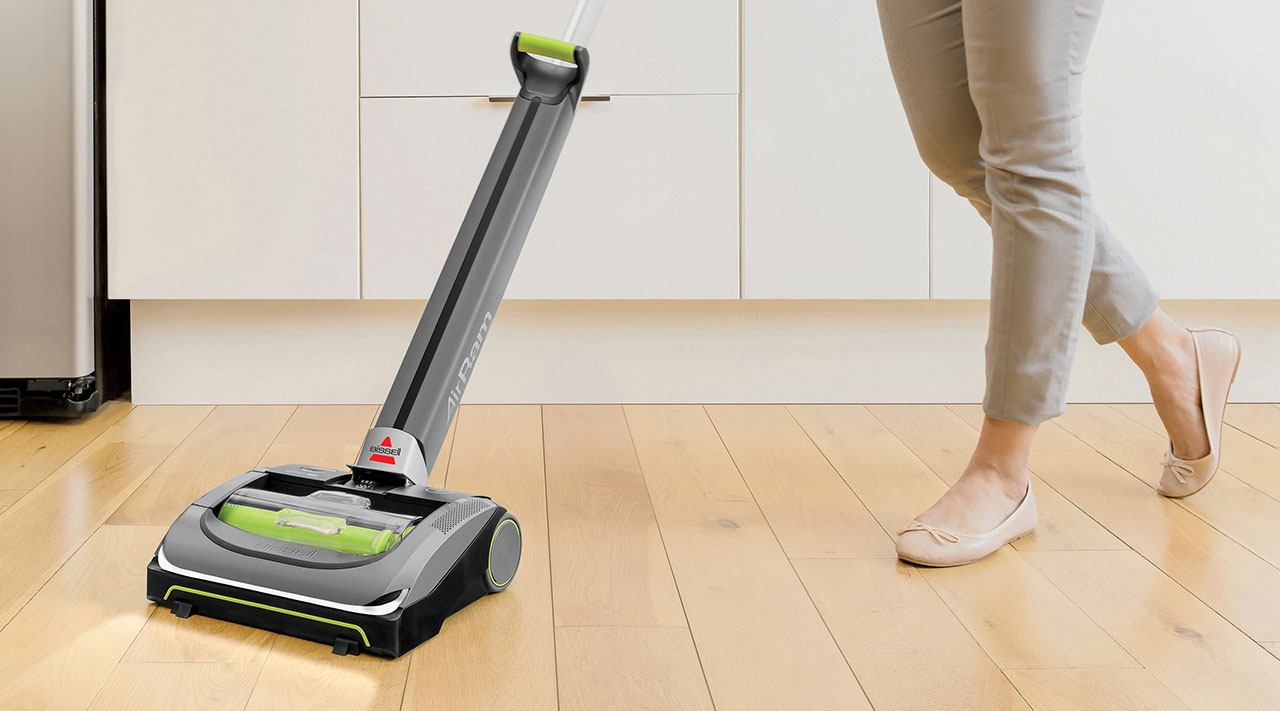
How to Choose a Vacuum?
Choosing the best commercial vacuum cleaner isn’t just about price – it’s about matching features to your facility’s needs. A well-chosen vacuum enhances cleaning efficiency, saves costs, and creates a healthier environment for everyone.
Start by assessing your space, understanding cleaning demands, and prioritizing durability and filtration. Whether you need an upright for carpets, a backpack for mobility, or a wet/dry vacuum for versatility, the right choice will pay off in performance and value.
Recent Posts
-
High-Touch Surface Cleaning Checklist & Guide for Facilities
Overview: What This Guide Covers This guide provides a complete, ready-to-use high-touch surface cle …Jan 16, 2026 -
Facility HVAC Cleaning Checklist: What to Clean, When, and Why
The Dust You Don't See In many facilities, floors get cleaned, windows shine, and restrooms are sani …Jan 09, 2026 -
Fragrance-Free vs Scented: Build an Allergy-Safe Cleaning Program that Still Works
When "Clean" Becomes a Complaint You know the scene: your custodial team disinfects the office overn …Dec 05, 2025

